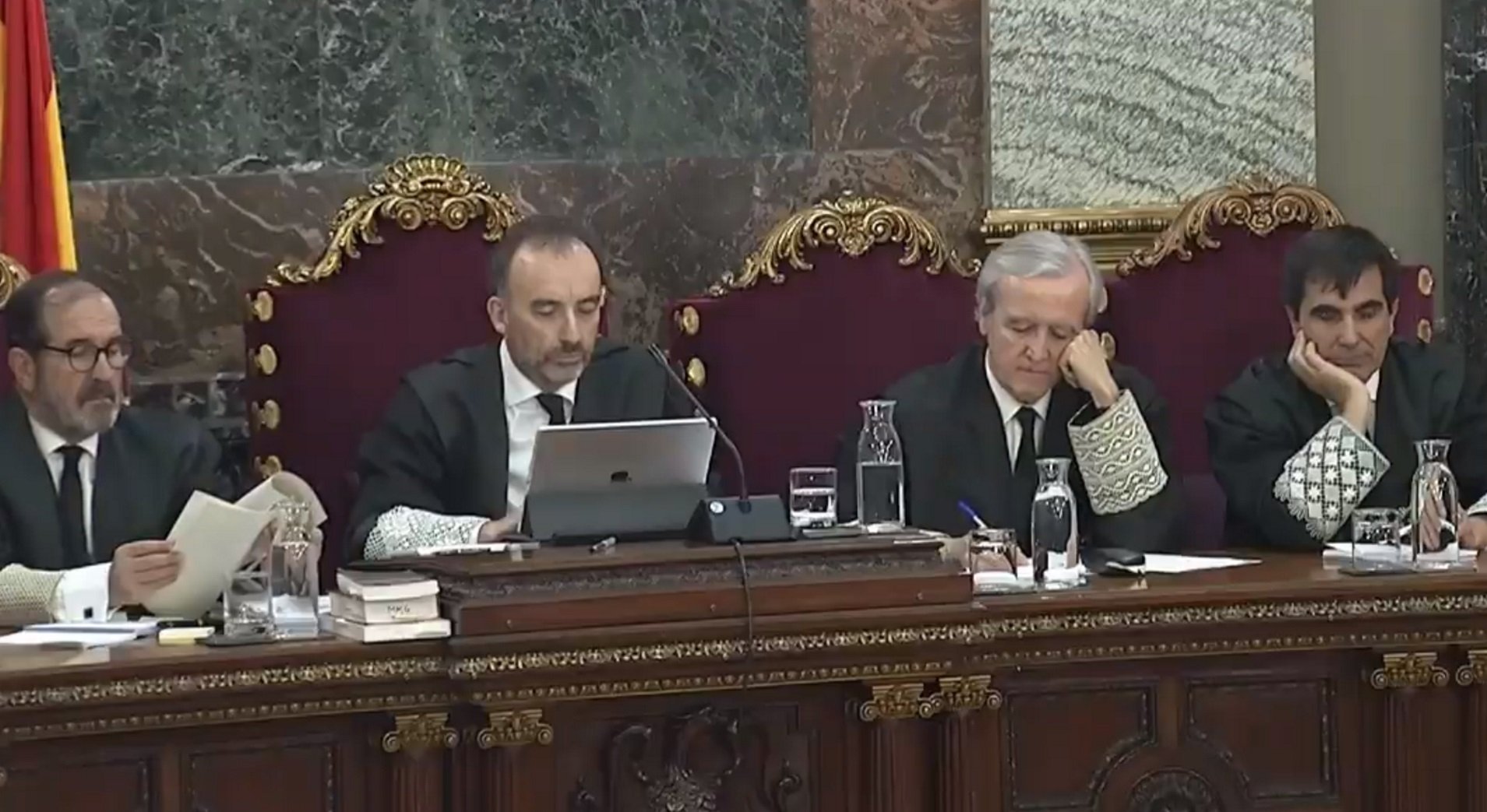The Catalan independence trial observers from specially formed body International Trial Watch have today criticised a new legal obstacle from presiding judge Manuel Marchena. Specifically, they criticise his handling in the seventh week of the trial of police reports, and his refusal to compare the testimony of Civil Guard lieutenant colonel Daniel Baena with the reports he led the production of.
The judge said the court would only consider whatever is said during the trial. The observers say that the police reports should be key and compared with testimony in the courtroom, "and much more in the current case, in which the investigation (and the agreement of pretrial detention) has been based to a large extent on these reports".
In the case of Baena, the observers say that the few questions the defences were able to pose "have laid bare that the subject of the investigation, started in 2015, weren't specific events, but a political movement". In their opinion, this could show "that it could be a question of a political trial, not possible in the framework of the Spanish penal process".
They also highlight that if it's shown that Baena, who headed the police investigation, "didn't act with absolute neutrality and impartiality as demanded by the law, [his] lack of credibility [as a witness] would also be obvious".
Prepared statements
The observers also say that police witnesses have "repeated insistently" certain words and descriptions of events like "hatred", "tumult", "multitude", "powder keg", "insurrection" and "fear". They note these are "subjective evaluations which in no way relate the defendants with the events [under consideration]". They suggest that the repetition could "indicate both that such testimonies could be orchestrated and prepared, and that the fact that the trial is broadcast live could be contaminating the witnesses".
The body also again expresses its regret that the presiding judge doesn't allow witness testimony to be compared at the time with videos or other evidence entered in the case, or for witnesses to be asked questions about relevant matters beyond those specifically listed in the reasons they are called to testify on. Similarly, they repeat their concern that the parties involved still don't have a full timetable for the trial, or even the current witness phase, making it harder for them to adequately prepare the case.

